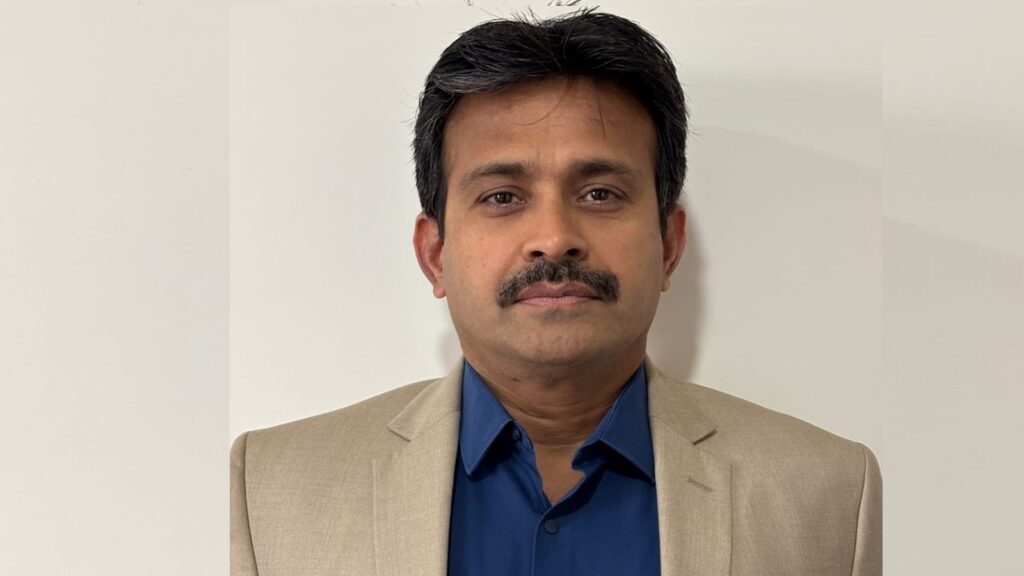Growing up in Yelburga taluk of Karnataka’s Koppal district in the 1970s and 1980s, Dr Rajesh Kishan Rao, now 51, experienced first-hand the ‘backwardness’ of the district, especially in the healthcare sector. This awareness gradually transitioned into a personal mission, a trigger point to pursue medicine and serve the rural households in the state.
Dr Rao is a professor and unit head of cardiothoracic surgery at Sri Jayadeva Institute of Cardiovascular Sciences and Research (SJICS&R) in Bengaluru. Till now, he has over 600 minimally invasive cardiac surgeries (MICS) and over 3,000 cardiac surgeries to his name.
“Operating on more and more patients isn’t something that makes me happy. My goal is to ensure that the number of patients reduces over time. I always wish for a healthy life for one and all,” says Dr Rao.
Recalling an incident from his young days, Dr Rao says, “One day, one of the villagers fractured his arm, and we had to wait for 12 hours to get him proper treatment. He was later shifted to a hospital in Gangavati town. This pained me and made me wonder about the reach of healthcare in villages. That is when I decided to take up medicine seriously and ensure no patient, especially those from a lower socioeconomic background, is left unattended.”
Dr Rao studied in a government school and later pursued MBBS from the Government Medical College, Bellary. However, he did not crack the seat in the first attempt. “I narrowly missed the MBBS seat, and I did not have a solid financial backing to afford management quota seats. Hence, I dropped a year, prepared harder, and took another shot at it in the following year, and then secured a seat,” he says.
Later, Dr Rao worked briefly at a government hospital in Delhi as a junior registrar in 2001 before pursuing his MS (General Surgery) in KMC, Mangalore in 2004. Drawing inspiration from his cardiology professor, Dr Suresh Pai, he took up cardiology. He also worked as a cardiothoracic surgeon at NIMS, Hyderabad, before joining SJICS&R as an assistant professor in 2008.
Dr Rao specialises in complex cardiac and thoracic surgical procedures, including coronary artery bypass grafting, valve repairs/replacements, minimally invasive techniques including Right Anterior Thoracotomy (RAT), and Right Ventricle Infra-Axillary Thoracotomy (RVIAT).
Story continues below this ad
Unlike traditional open-heart surgery, which requires cutting through the breastbone and leaves a long, visible scar down the chest, the RVIAT approach uses a 3-5 cm incision hidden beneath the right arm. For the patient, this means less pain, less blood loss, and a far quicker return to normal life.
For young girls and women, it means something even more precious: the scar is hidden away from the “milk line”, ensuring that future breast development is not affected.
Dr Rao has performed more than 95 per cent of these surgeries free of cost for patients below the poverty line – when advanced cardiac care costs several lakhs in private hospitals. “In fact, Jayadeva Hospital in Bengaluru is the only government hospital in India where more than 600 MICS have been performed,” claims Dr Rao.
The doctor says that the most challenging part of his job is when he performs surgeries on young children who develop a hole between the upper chambers of the heart. “This gives a very traumatic experience. It only makes me ponder as to why God is unkind to such young children,” he adds.
Story continues below this ad
Dr Rao also conducts free medical camps at Gangavati and offers diagnostic checks to villagers. “Since there is no necessary infrastructure and resources to perform surgeries in villages, I ask them to visit Jayadeva Hospital in case they are diagnosed with serious cardiac problems,” he says.
Dr Rao is also someone who is not enticed by offers from private hospitals. “I don’t align with the vision of private hospitals. I am not a medical professional who can work on ‘targets’ as some call them. A lot of Jayadeva’s patients travel for hundreds of kilometres in multiple modes of transport to reach the hospital. Nothing else pleases me than seeing these people recover,” concludes Dr Rao.


